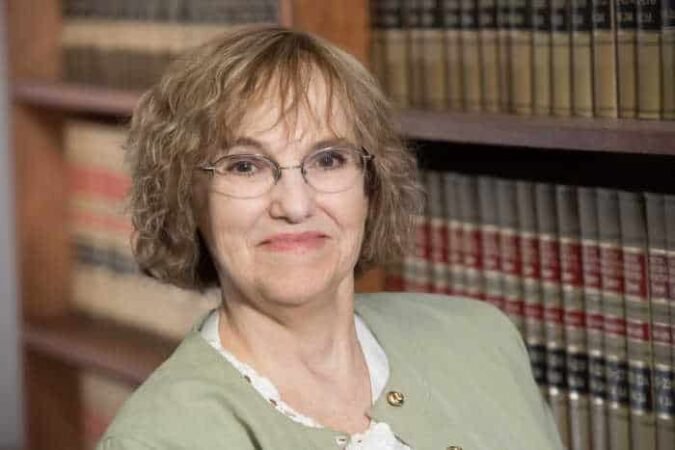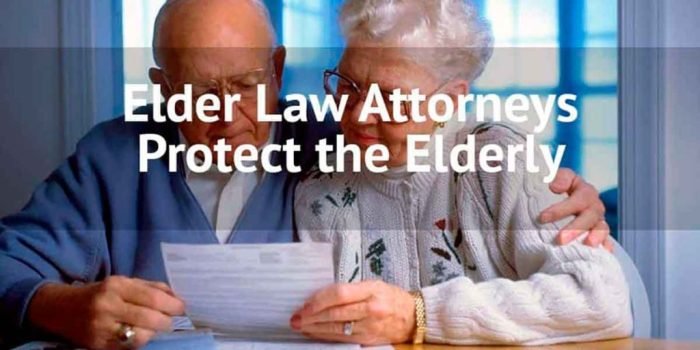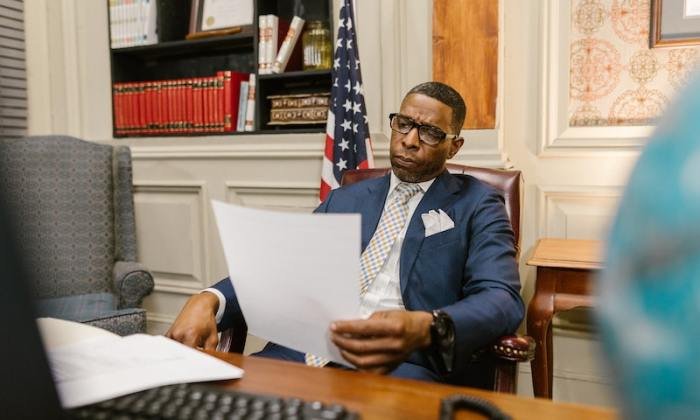
Navigating the complexities of aging can be challenging, especially when legal matters arise. A Buffalo NY elder law attorney provides invaluable support, guiding seniors and their families through the intricacies of estate planning, Medicaid applications, long-term care, and other crucial legal issues specific to the later stages of life. Understanding the nuances of elder law is paramount to ensuring a secure and comfortable future for your loved ones.
This comprehensive guide explores the essential aspects of elder law in Buffalo, NY, offering insights into the services available, the process of selecting a qualified attorney, and common legal situations faced by seniors and their families. We’ll delve into crucial topics like estate planning, Medicaid eligibility, and guardianship, providing practical advice and resources to help you make informed decisions.
Understanding Elder Law in Buffalo, NY
Elder law in Buffalo, NY, addresses the complex legal and financial challenges faced by senior citizens and their families. It’s a specialized area of law requiring a nuanced understanding of both legal principles and the unique vulnerabilities of older adults. This includes navigating healthcare decisions, managing assets, and planning for long-term care.
Key Areas of Elder Law Practice in Buffalo, NY
Buffalo elder law attorneys typically handle a range of matters. These commonly include estate planning, specifically tailored to the needs of seniors; Medicaid and long-term care planning, assisting clients in qualifying for government assistance programs; guardianship and conservatorship, addressing situations where an individual lacks the capacity to manage their affairs; and probate and estate administration, handling the legal process of distributing assets after someone passes away. Additionally, elder law attorneys often assist with issues related to elder abuse and neglect, providing legal representation and advocating for their clients’ rights.
Common Legal Issues Faced by Seniors in Buffalo, NY
Seniors in the Buffalo area, like those across the nation, encounter several recurring legal problems. These often involve the high cost of long-term care, the complexities of navigating Medicaid applications, and concerns about estate preservation and tax implications. Other common issues include incapacity planning, ensuring that their wishes regarding healthcare and financial matters are respected should they become unable to make decisions for themselves; and end-of-life planning, including creating advance directives like living wills and durable powers of attorney. Finally, disputes among family members regarding inheritance and caregiving responsibilities are also frequently encountered.
Comparison of Different Types of Elder Law Services
Elder law services vary widely depending on the client’s needs. Some attorneys focus exclusively on estate planning, drafting wills, trusts, and powers of attorney. Others specialize in Medicaid planning, helping clients protect assets while qualifying for government assistance. A comprehensive elder law practice, however, will often encompass all these areas and more, offering a holistic approach to addressing the client’s legal and financial situation. The choice of attorney should depend on the individual’s specific circumstances and the complexity of their legal needs. For example, a client needing help solely with drafting a will may not require the same level of expertise as someone facing complex Medicaid qualification issues.
Examples of Cases Handled by Elder Law Attorneys in Buffalo, NY
Elder law attorneys in Buffalo have handled a variety of cases. One example might involve assisting a family in navigating the process of applying for Medicaid to cover the costs of nursing home care for a parent with Alzheimer’s disease. This would include asset protection strategies to maximize eligibility while preserving assets for the benefit of surviving family members. Another case might involve a dispute between siblings over the distribution of a parent’s estate, requiring the attorney to interpret the will and advocate for their client’s interests. A third example could be representing a senior who has been the victim of financial exploitation, working to recover lost funds and ensure the perpetrator is held accountable. These are just a few examples of the diverse and often complex cases handled by elder law attorneys in Buffalo, NY.
Finding the Right Attorney
Choosing the right elder law attorney is crucial for navigating the complex legal landscape surrounding aging and end-of-life planning. A skilled attorney can provide invaluable guidance and support, ensuring your needs and wishes are protected. Careful consideration of several key factors will help you find the best fit for your situation.
Checklist for Selecting an Elder Law Attorney
Selecting an attorney requires careful evaluation. The following checklist highlights important factors to consider when making your decision.
- Experience and Specialization: Look for an attorney with significant experience in elder law, specifically handling cases relevant to your needs (e.g., Medicaid planning, estate planning, guardianship).
- Client Testimonials and Reviews: Check online reviews and seek testimonials from previous clients to gauge their satisfaction with the attorney’s services and communication style.
- Communication Style and Accessibility: Choose an attorney with whom you feel comfortable communicating. Consider their responsiveness to inquiries and their willingness to explain complex legal concepts in clear terms.
- Fees and Payment Options: Understand the attorney’s fee structure upfront, including hourly rates, contingency fees, or flat fees. Discuss payment plans if necessary.
- Location and Accessibility: Consider the attorney’s office location and accessibility, ensuring convenient access for meetings and consultations.
- Professional Affiliations and Memberships: Look for attorneys affiliated with relevant professional organizations, such as the National Academy of Elder Law Attorneys (NAELA), which indicates a commitment to specialized knowledge and ethical practices.
Attorney Fee Structures
Different attorneys utilize various fee structures. Understanding these structures is vital for budgeting and making informed decisions.
| Fee Structure | Description | Advantages | Disadvantages |
|---|---|---|---|
| Hourly Rate | The attorney charges an hourly fee for their services. | Transparent and predictable for smaller tasks. | Can become expensive for complex cases; difficult to budget accurately for large projects. |
| Flat Fee | A fixed fee is charged for a specific service or type of case. | Predictable cost; ideal for straightforward matters. | May not be suitable for complex cases requiring significant time and effort. |
| Contingency Fee | The attorney’s fee is a percentage of the amount recovered. | No upfront cost; attractive for cases with potential for substantial recovery. | Only applicable to certain types of cases; attorney’s incentive may be misaligned with client’s best interest in some scenarios. |
| Retainer Fee | An upfront payment secures the attorney’s services for a specified period or amount of work. | Guarantees attorney availability; beneficial for ongoing legal needs. | Requires a significant upfront investment. |
Resources for Finding Qualified Elder Law Attorneys
Several resources can assist in locating qualified elder law attorneys in Buffalo, NY.
- New York State Bar Association: The NYSBA website offers a lawyer referral service and attorney directory.
- National Academy of Elder Law Attorneys (NAELA): NAELA’s website provides a directory of certified elder law attorneys.
- Local Bar Associations: Contact the Erie County Bar Association for referrals to attorneys in the Buffalo area.
- Online Legal Directories: Websites like Avvo, Martindale-Hubbell, and Justia offer attorney profiles and reviews.
- Referrals from Trusted Sources: Seek recommendations from friends, family, financial advisors, or other professionals who have experience with elder law attorneys.
Verifying Attorney Experience and Qualifications
Thoroughly verifying an attorney’s experience and qualifications is paramount. This involves checking their licensing status with the New York State Bar, reviewing their professional background and areas of expertise, and confirming their membership in relevant professional organizations. Inquiries about their caseload and specific experience handling cases similar to yours can provide further assurance of their competence. Failing to verify credentials could lead to inadequate legal representation and potentially detrimental outcomes.
Common Elder Law Matters
Navigating the complexities of aging can be challenging, both personally and legally. Elder law in Buffalo, NY, addresses the unique legal needs of seniors and their families, encompassing a range of crucial matters. Understanding these common issues is vital for proactive planning and peace of mind.
Estate Planning for Seniors in Buffalo, NY
Estate planning for seniors involves organizing and legally protecting their assets for the future. This process typically includes creating or updating a will, establishing trusts (if appropriate), and designating beneficiaries for retirement accounts and other assets. A well-structured estate plan ensures that assets are distributed according to the senior’s wishes, minimizing potential family disputes and tax liabilities. In Buffalo, NY, considerations such as New York State’s estate tax laws and the potential need for Medicaid planning are particularly important. A skilled elder law attorney can guide seniors through this process, tailoring the plan to their individual circumstances and ensuring compliance with all relevant laws. For example, a senior with significant assets might benefit from a trust to minimize estate taxes, while a senior with more modest assets might focus primarily on a straightforward will.
Legal Implications of Long-Term Care Planning
Long-term care planning addresses the financial and legal ramifications of potential future need for assisted living facilities, nursing homes, or in-home care. The significant cost of long-term care can quickly deplete personal savings. Therefore, strategies such as Medicaid planning are often employed to protect assets while still qualifying for government assistance. Understanding the rules and regulations surrounding Medicaid eligibility is crucial, as improper planning can lead to significant financial penalties. An elder law attorney can help seniors navigate the complexities of Medicaid applications and asset protection techniques, ensuring they receive the care they need without jeopardizing their financial security. For instance, a common strategy involves creating an irrevocable trust to protect assets while still meeting Medicaid’s eligibility requirements.
Preparing a Durable Power of Attorney
A durable power of attorney (POA) designates a trusted individual (the agent) to manage the senior’s financial affairs if they become incapacitated. This document is crucial because it ensures that someone is legally authorized to make financial decisions on the senior’s behalf, preventing potential delays or disputes. The step-by-step process typically involves:
- Choosing an Agent: Selecting a responsible and trustworthy individual who understands the senior’s wishes and financial situation.
- Obtaining Legal Counsel: Consulting with an elder law attorney to ensure the POA document is properly drafted and complies with New York State law.
- Document Execution: The senior and the agent must sign the POA document in the presence of witnesses, typically a notary public.
- Safe Storage: Keeping the original document in a safe and accessible location, ensuring the agent has a copy.
- Review and Updates: Periodically reviewing the POA to ensure it remains current and reflects the senior’s wishes. Circumstances change, and it’s important the document reflects this.
Creating a Living Will
A living will, also known as a healthcare directive, Artikels the senior’s wishes regarding medical treatment in the event they become terminally ill or permanently unconscious. It allows individuals to express their preferences about life-sustaining treatment, such as artificial respiration or feeding tubes. A well-drafted living will provides clarity and peace of mind, ensuring that medical decisions align with the senior’s values and preferences. For example, a living will might state that the individual does not wish to be kept alive by artificial means if there is no reasonable chance of recovery. Another example might specify the individual’s preference regarding pain management. A living will should be reviewed and updated regularly, in consultation with an elder law attorney, to ensure it remains consistent with the senior’s evolving wishes and medical circumstances.
Medicaid and Long-Term Care
Navigating the complexities of Medicaid and long-term care in New York State can be daunting, especially when facing the financial and emotional burdens of aging. Understanding the eligibility requirements and application process is crucial for securing the necessary support for yourself or a loved one. This section will provide a clearer picture of Medicaid’s role in financing long-term care in Buffalo, NY.
Medicaid Eligibility Requirements for Long-Term Care in New York State
To qualify for Medicaid coverage of long-term care in New York, applicants must meet specific income and asset limitations. These limits are regularly updated, so it’s vital to consult the most current information from the New York State Department of Health or a qualified elder law attorney. Generally, eligibility involves demonstrating a limited income and asset level, while also meeting residency and citizenship requirements. The specific thresholds vary depending on the individual’s circumstances, including marital status. For instance, a married couple may be able to protect a larger amount of assets than a single individual. Furthermore, certain assets may be exempt from consideration, such as the applicant’s primary residence (with limitations) and a vehicle.
Applying for Medicaid to Cover Long-Term Care Costs
The application process for Medicaid long-term care coverage is extensive and requires meticulous documentation. Applicants must complete a detailed application form, providing comprehensive financial information, including bank statements, tax returns, and proof of income. They must also submit documentation proving their identity, residency, and citizenship. The application is reviewed by the local Medicaid office, which may request additional information or clarification. This process can take several months, and it’s highly advisable to seek legal assistance to navigate the intricacies of the application and ensure a smoother process. During the application process, applicants must demonstrate their need for long-term care services through medical documentation from their physician.
Strategies for Protecting Assets While Qualifying for Medicaid
Protecting assets while qualifying for Medicaid is a common concern for many families. Several strategies can help preserve assets while still meeting Medicaid eligibility requirements. One common approach involves establishing an irrevocable trust, which transfers ownership of assets to a trustee, thus removing them from the applicant’s countable assets. However, these trusts must be properly structured to comply with Medicaid rules to avoid penalties. Other strategies include gifting assets, but this must be done carefully and well in advance of applying for Medicaid to avoid penalties. The five-year look-back period is crucial; any transfers within this timeframe may result in a period of ineligibility. Consulting with an elder law attorney is strongly recommended to develop a personalized asset protection plan that aligns with individual circumstances and legal requirements.
Types of Long-Term Care Facilities in Buffalo, NY
Buffalo, NY, offers a variety of long-term care facilities to cater to different needs and preferences. These include nursing homes, which provide 24-hour skilled nursing care, assisted living facilities, offering personal care and assistance with daily living activities, and adult home care, providing a less structured environment with varying levels of support. In-home care services are also available, allowing individuals to receive care in the comfort of their own homes. The choice of facility depends on individual needs, financial resources, and personal preferences. Factors such as the level of medical care required, the level of independence the individual maintains, and the desired level of social interaction all play a role in determining the most appropriate setting.
Guardianship and Conservatorship

Guardianship and conservatorship are legal processes designed to protect individuals who lack the capacity to manage their own affairs. This often arises due to aging, illness, or disability, impacting their ability to make sound decisions regarding their personal care, finances, or property. These legal arrangements provide a framework for responsible decision-making on behalf of the incapacitated person, ensuring their well-being and safety.
Circumstances Necessitating Guardianship or Conservatorship
Several circumstances can necessitate the establishment of a guardianship or conservatorship. These typically involve situations where an individual demonstrates a significant impairment in their cognitive abilities or decision-making skills, rendering them unable to care for themselves or manage their affairs effectively. This impairment can stem from various conditions, including dementia, Alzheimer’s disease, traumatic brain injury, or severe mental illness. The inability to handle personal care, such as hygiene, nutrition, or medication, or the inability to manage financial resources, pay bills, or avoid exploitation, are key indicators that a guardianship or conservatorship may be necessary.
The Legal Process of Obtaining Guardianship or Conservatorship
The process of obtaining guardianship or conservatorship involves filing a petition with the court, detailing the individual’s incapacity and the need for a guardian or conservator. This petition typically includes medical evaluations, financial information, and statements from family members or other concerned parties. The court then reviews the evidence and determines whether the individual lacks the capacity to manage their affairs. If incapacity is determined, the court appoints a guardian or conservator, who is responsible for making decisions on behalf of the incapacitated person. The specific procedures and requirements can vary slightly depending on the jurisdiction and the nature of the incapacity. A lawyer specializing in elder law can guide you through this complex process.
Responsibilities of a Guardian or Conservator
The responsibilities of a guardian or conservator are significant and vary depending on the specific court order. A guardian is responsible for the ward’s personal care, well-being, and overall safety. This can include making decisions regarding medical treatment, living arrangements, and social interactions. A conservator, on the other hand, manages the ward’s financial affairs, including paying bills, managing investments, and protecting assets from exploitation. Both guardians and conservators are held to a high standard of care and are required to act in the best interests of the ward. They are often required to submit regular reports to the court, documenting their actions and decisions.
Examples of Situations Requiring Guardianship or Conservatorship
Several situations commonly necessitate guardianship or conservatorship. For example, an elderly individual diagnosed with advanced dementia who is unable to manage their medication or personal hygiene may require a guardian to oversee their daily care. Similarly, an individual who suffers a severe stroke resulting in significant cognitive impairment might need a conservator to manage their finances and prevent financial exploitation. Another example could be a young adult with a severe developmental disability who lacks the capacity to make independent life decisions. In each of these scenarios, the court-appointed guardian or conservator acts as a protector, ensuring the well-being and safety of the individual while respecting their rights and dignity to the greatest extent possible.
Legal Issues Related to Aging Parents

Caring for aging parents often presents a complex array of legal challenges. These issues can range from managing finances and healthcare decisions to navigating the intricacies of estate planning and potential guardianship. Understanding these potential difficulties proactively can help families make informed decisions and mitigate potential conflicts.
Common Legal Issues Arising When Caring for Aging Parents
As parents age, several legal issues frequently emerge. These include concerns about their capacity to manage their own affairs, the need for power of attorney arrangements, and the potential for elder abuse or exploitation. Decisions regarding healthcare, housing, and financial resources also become increasingly significant and often require careful legal consideration. For instance, a parent experiencing cognitive decline may need assistance with bill paying, leading to the need for a financial power of attorney. Similarly, the need for long-term care might necessitate the establishment of a trust to protect assets while qualifying for Medicaid. The potential for undue influence from third parties also requires vigilance and potentially legal intervention.
Strategies for Managing Financial Affairs for Aging Parents
Effective financial management for aging parents often involves establishing a durable power of attorney for finances. This legal document grants a designated individual the authority to manage the parent’s financial affairs if they become incapacitated. Regularly reviewing bank statements, paying bills, and managing investments are crucial responsibilities. Open communication with the parent, and if appropriate, other family members, is vital to ensure transparency and accountability. Consideration should also be given to setting up a trust to protect assets and potentially qualify for government assistance programs like Medicaid. It is advisable to consult with a financial advisor and an elder law attorney to develop a comprehensive financial plan that addresses the parent’s specific circumstances and goals. For example, a trust could help preserve assets while ensuring the parent receives the necessary long-term care.
Handling Medical Decisions for Incapacitated Parents
When a parent loses the capacity to make their own healthcare decisions, a durable power of attorney for healthcare becomes essential. This document designates someone to make medical decisions on their behalf, based on the parent’s previously expressed wishes or, in the absence of such wishes, in the parent’s best interests. It is crucial to have open conversations with parents while they are still capable, documenting their preferences regarding life-sustaining treatment, end-of-life care, and other medical choices. This process ensures that their wishes are respected and that their family can make informed decisions during a challenging time. If no advance directive exists, the court may need to appoint a guardian to make these decisions.
Resources Available to Assist Families Caring for Aging Parents
Families caring for aging parents often benefit significantly from available support resources. Access to these resources can ease the burden and ensure the parent receives the best possible care.
- Area Agencies on Aging (AAAs): These agencies provide information and assistance with a wide range of services, including home care, transportation, and adult day care.
- Elder Law Attorneys: These attorneys specialize in legal issues related to aging, providing guidance on estate planning, Medicaid applications, and guardianship.
- Financial Advisors: Financial advisors can help families manage their parents’ finances, including investments and long-term care planning.
- Social Workers: Social workers can offer emotional support and assistance with navigating the complexities of elder care.
- Medicaid and Medicare Offices: These offices provide information and assistance with applying for and managing government healthcare programs.
- Support Groups: Support groups connect families with others facing similar challenges, offering mutual support and shared experiences.
Illustrative Case Studies
Understanding the complexities of elder law is best achieved through examining real-world scenarios. The following hypothetical cases illustrate common challenges faced by seniors and their families in Buffalo, NY, and the role of an elder law attorney in navigating these situations.
Estate Planning for a Wealthy Senior
Mr. Arthur Miller, a 78-year-old retired businessman, possessed significant assets including real estate, stocks, and a substantial savings account. He wished to ensure his assets were distributed according to his wishes, minimizing estate taxes and providing for his wife and children. His attorney assisted him in creating a comprehensive estate plan, including a will, trust, and power of attorney. The will specified the distribution of his assets after his death. The trust provided for the management of his assets during his lifetime and after his death, ensuring his wife’s financial security. The power of attorney designated his son to manage his financial affairs if he became incapacitated. This proactive planning protected his family from potential legal disputes and ensured a smooth transfer of assets.
Long-Term Care and Medicaid Assistance
Mrs. Eleanor Vance, a 85-year-old widow with Alzheimer’s disease, required extensive long-term care. Her savings were quickly depleted. Her daughter sought legal assistance to navigate the complexities of Medicaid. The attorney helped her understand the eligibility requirements for Medicaid, which includes asset limitations. They worked together to protect her assets while still ensuring Mrs. Vance received the necessary care. This involved establishing a Medicaid compliant trust to protect some of her assets and qualify for Medicaid benefits. The attorney also advocated for her on her behalf with the relevant agencies, ensuring she received the care she needed.
Family Dispute Over the Care of an Aging Parent
The Johnson family experienced a conflict over the care of their 90-year-old mother, Mrs. Martha Johnson. Her children disagreed on the best course of action – one child wanted her to remain at home with in-home care, while another preferred a nursing home. The disagreements intensified, creating family tension and impacting Mrs. Johnson’s well-being. Legal intervention was sought to mediate the dispute and establish a care plan that addressed the needs of both Mrs. Johnson and her family. The attorney facilitated communication, helped the family understand their legal rights and responsibilities, and assisted in developing a comprehensive care plan that met the court’s approval and addressed the needs of all parties. This included establishing a guardianship or conservatorship to oversee Mrs. Johnson’s care and finances if she lacked the capacity to make those decisions herself.
Epilogue

Protecting the well-being and legal rights of seniors in Buffalo, NY, requires careful planning and expert legal guidance. By understanding the key elements of elder law, and by selecting a competent and compassionate attorney, individuals and families can navigate the challenges of aging with confidence and peace of mind. Remember, proactive planning and informed decision-making are essential for securing a brighter future for your loved ones.
Helpful Answers
What is the average cost of hiring an elder law attorney in Buffalo, NY?
Attorney fees vary widely depending on the complexity of the case and the attorney’s experience. It’s best to schedule consultations with several attorneys to discuss fees and payment plans.
How do I find an attorney who specializes in Medicaid planning?
Look for attorneys who explicitly advertise their expertise in Medicaid planning on their websites or in professional directories. You can also ask for referrals from trusted sources like financial advisors or social workers.
What documents are necessary when applying for Medicaid?
Required documents typically include proof of income, assets, and residency, along with medical records. Your attorney can provide a complete list and assist with the application process.
Can an elder law attorney help with disputes among family members regarding an aging parent’s care?
Yes, elder law attorneys can mediate family disputes and represent clients in legal proceedings related to guardianship, conservatorship, or other matters concerning an aging parent’s care.




